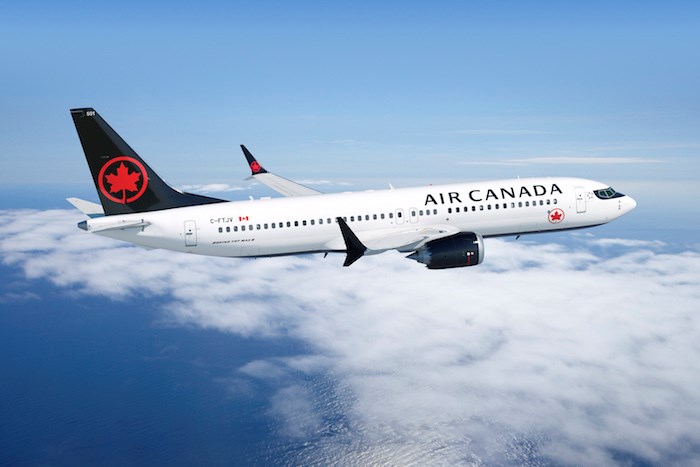Air Canada's environmental footprint in the sky will be a little lighter, thanks to a renewable aviation fuel being made by Parkland Corp. (TSX:PKI) refinery in Burnaby.
In 2019, Parkland began experimenting with making biofuels in order to meet B.C.’s low-carbon fuel standards. The refinery uses feedstocks such as canola oil and oil derived from animal fats and to make biofuels, which can then be blended with petroleum fuels, like diesel, to lower their carbon intensity.
Parkland is now using the process to make a low carbon aviation fuel, and it’s first customer is Air Canada. No modifications are needed to jet engines to burn the fuel.
“Parkland is thrilled to demonstrate its leadership and proven expertise at the Burnaby Refinery by becoming the first company to produce low carbon aviation fuel in Canada,” Parkland senior vice president Ferio Pugliese said in a press release.
Parkland has produced about 100,000 litres of the aviation fuel, and Air Canada has made its first purchase. Blended at one per cent, it will produce10 million litres of lower carbon aviation fuel, Parkland said.
“This represents our first commercial purchase of Canadian produced low carbon aviation fuel,” Air Canada CEO Michael Rousseau said in a press release. “Currently, the Canadian airline industry is dependent on international imports of low carbon fuels, making Parkland’s accomplishment a critical first step in creating domestic supply."
The B.C. government has supported Parkland's low-carbon fuel pilot project with low carbon fuel credits.
"I want to congratulate Parkland on this groundbreaking initiative that aligns with our government's climate goals and the urgency in which we must address climate change," said Adrian Dix, Minister of Energy and Climate Solutions.
"British Columbia leads the way in incentivizing innovation to reduce emissions across many sectors, and Parkland continues to be an outstanding partner and role model for biofuel producers."
In 2022, Parkland announced plans for a $600 million biofuel refinery that would have boosted the refinery’s production of biodiesel to 6,500 barrels per day, but the plan was cancelled in 2023.




